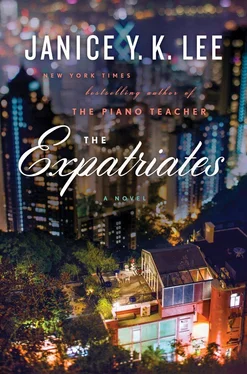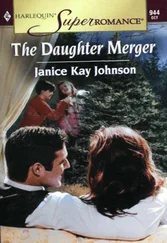That’s the shock, and the surprise, to a lot of repatriates: No one back home cares. There’s an initial, shallow interest in what life is like abroad, but most Americans aren’t actually interested, at all. They’re back to talking about the divorces going on at work, or how the neighborhood pharmacy is going under, or how highway construction has added forty minutes to their commute. They don’t want to know about the trip to Hoi An and how Vietnam has changed immensely, or how Beijing’s pollution is so thick that when you were there, you had to wear a handkerchief over your face. America is so vast, and there is so much to see, just in the fifty states, these people tell you — it’s like you never have to leave. This insularity will seem shocking for the first year back, when reentry is difficult, when you miss the ease of Hong Kong, forgetting all your complaints from when you were there, remembering only the good winter weather, the amazing dumplings and cheap taxis, but all too soon most everyone slips into the warm comforts of America, so convenient, so uniform, forgetting there is anything outside its borders.
There’s a moment in all these farewell parties when the person leaving is alone, drying her hands in the bathroom, waiting at the bar for a drink, and she foresees a moment in her new old life. Perhaps it will be the still, frozen Thursday-night light of a mall refracting through the window of a TGI Fridays as she’s surrounded by old high school friends in this most American of venues, chosen out of what they choose to call nostalgia but is usually something deeper and more fraught, the uneasy push-pull of the giant frozen cocktail, the greasy blooming onion — the all-encompassing and smothering embrace of America. Or she’ll see another moment in her imminent future, when she’s looking back into the past: Washing dishes in the waning light of a Columbus, Ohio, kitchen, sudsy hands gripping greasy dishes, a woman will summon up a startling picture of herself, a moment in Hong Kong when she was walking across the lobby of the Mandarin Hotel in a fitted sheath and expensive stiletto-heeled shoes, the kind she has no use for anymore, on her way to meet a friend for lunch, or walking through the streets with her toddler on her hip while her helper, her servant, trailed behind, carrying the diaper bag and various other accouterments of daily life she hadn’t had to bother herself with. What a life it was! What a life they had all had! While many of them had complained the whole time they were stationed in Hong Kong, it is only after they leave, when they are ensconced in their old lives with no change visible for decades ahead, that they will appreciate the wonder of what they had experienced.
At the farewell parties and back at home, they will take a moment to see themselves with their present friends, their old friends, their new friends, their new old friends, the past meeting the present, endlessly echoing back and forth, and they’ll see their future, so close, bumping into the moment, and frighteningly the same, and they’ll wonder if their past, their time away in the Far East, was just that, a dream.
As Hilary sits at the kitchen table, she hears the piano playing. She is waiting for Julian to finish so they can go out together. Miss Kim, the Korean lady she found to teach him, says she is happy with his progress, but Hilary has no idea whether he is good. She doesn’t care that much if he is. The tinkling melody, not unpleasant, soothes her.

She is going to adopt Julian.
It was not some big awakening, some blazing moment of truth. Like so many things in real, unromantic life, it came in a slow accumulation of small tasks, almost unconscious. She filled out some forms. She sent e-mails to the few people she will need recommendations or information from. She asked the accountant for copies of tax returns and the consulate for legal documents. In this way, she came to realize that she is adopting Julian. She has not told him, but she is clearing away the brush in front of her to see what lies ahead. The social worker has told her that while she cannot request a specific child, if she starts the application process and says she is okay with a mixed-race, older child, the odds are very good she will get Julian, as the adoption pool in Hong Kong is very small, under two hundred, and he is likely the only one who fits that description. The odds of his getting adopted are almost nil. In the last year there were fewer than three hundred adoptions in all of Hong Kong. Most were infants adopted by local families, a small percentage by foreign, and a very few are within families. Hilary wonders about the stories behind that last, small statistic.
There have been moments when she isn’t sure, but she plows on, filling in David’s name as the father, listing her academic and medical history. Maybe this is all it is. She does not think he will deny her this, after all he has done.
After the lesson, she will take Julian on a walk. This is the second time they have done this. Sam drives them to Tai Tam, and they walk slowly through the park and talk to each other in stilted English.
Miss Kim closes the music book and smiles. “Good job, Julian,” she says.
Hilary looks at her, this woman with her lovely, always beaming face, and wonders what she makes of the situation. The orphan, the woman always alone at home, the piano lesson. A job where you go to other people’s houses all day must unearth some odd situations.
Miss Kim takes her leave, and Hilary asks Julian if he’d like to go.
They get in the car, equipped with water and some oranges, and ride out to the beginning of the walk. It is one she does often with Olivia.
They get out, and she helps Julian on with his backpack, one she has given him. She grabs his hand, and they set out. It feels strange to hold his hand, but she keeps doing it. It will feel normal, she thinks, she just has to get used to it.
A couple comes out and smiles at them, seeing what they see — a mother and her child. Hilary is suddenly giddy with happiness.
“What is?” Julian asks, pointing at the road where there are splotches of white powder.
“It’s snake poison,” she tells him.
He shakes his head. She pulls out the notebook she has gotten into the habit of bringing and sketches a snake. “Snake.” She draws a skull and bones. “Poison.” Then she puts X’s in the snake’s eyes to signal its death.
He nods.
There is so much he needs to learn, it’s overwhelming. Immersion, she keeps thinking, she’s going to have to immerse him in English. She reads stories about immigrant children going to America at thirteen and having to go to a school where they don’t understand a word. They survive; some thrive. She knows it’s possible, but how to give a child a whole new world?
“I’ll take you to the Botanical Gardens one day,” she says. “They have a few snakes there.” She draws a cage with snakes behind the bars. He seems to understand, but who knows.
This planning for the future, this evocation of things to come, gives her a frisson, not unpleasant. She grows bolder. “And in California, in America, where I’m from, there are lots of zoos, and they have lots of animals. We’ll go see them together.” She squeezes his hand.
“Do you know California?” she asks. She draws America, fails, pulls out her phone and finds a map of the United States.
“Here.” She taps the West Coast. “That’s where I’m from,” and she points to herself. “We can fly there together.” She makes her arms wings and bobbles them back and forth.
She has not explicitly told him that she is going ahead with the adoption, but he knows. When she goes to pick him up, his fellow orphans crowd around him, speaking rapidly in Cantonese. They give her the thumbs-up sign and grin widely. She usually leaves quickly, uncomfortable with the implicit longing in the other children.
Читать дальше













